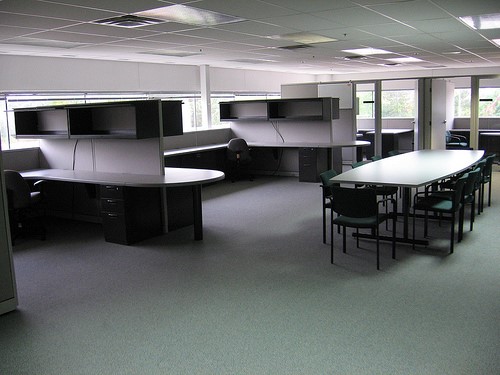Image via Flickr by dt10111
The startup days are an exciting time for a new business, but startup costs can bring danger. Many companies have fallen by the wayside because those in charge were not financially disciplined enough to shepherd the business through the early times. Here are some important tips to trim the startup costs that can drag your business down.
Know Your Size
As a founder, there is one question you should be asking yourself at every stage of your startup’s development: “Just how big should this operation be getting?” It’s sometimes difficult to estimate exactly how large your business needs to be, but finding the proper size is key to making sure you have the right number of employees and the right amount of space for your facilities.
It’s generally good to build in some room for growth, since your startup should be doing just that in its early days. However, you can moderate your startup costs by considering how much room should be set aside for growth. How much you’ll need will depend on the kind of business your company is in.
RELATED ARTICLE: 6 KEY CHARACTERISTICS OF A SUCCESSFUL BUSINESS
Should You Rent or Own?
Offices need office equipment, but you won’t necessarily need all of that equipment for the long term. If you need big pieces of machinery for temporary use, such as for an expansion project on an existing physical plant, you can still keep your startup costs down. Find a reputable rental agency rather than buying the equipment outright.
The same rule applies to a lot of the technology your office will require. Cloud computing has just about taken over as the dominant business IT paradigm. Therefore, the days of every location requiring expensive and maintenance-heavy equipment on site are thankfully over.
Should You Hire Employees or Work with Contractors?
Hiring employees is fun, and having a huge staff working under you can be a power trip. But sending out payroll for a large company is much less enjoyable.
A couple of areas where you can trim back payroll are support staff and IT. Think about how much your business will rely on having those people and services readily available. If these positions are not core functions, or if they revolve around projects with finite end dates on the horizon, consider instead bringing in outside contractors to perform the tasks. While a contractor is not necessarily cheap, they generally represent a one-time expense as opposed to a monthly payroll outlay.
Watch Your Expenses
One final way to keep costs down at your business is the same way you can keep costs down in your personal life: watch out for bills. Just like at home, your business will rack up expenses for heating, cooling, electricity, and phone and internet service. Don’t pay to control the climate of an empty building or light an empty office. And shop around when you’re looking for a business communications plan. Sign up only for the internet service you need for your line of work and no more.
With an eye for detail, keeping a startup on the right course is not all that difficult. The key thing to remember is to never lose sight of the bottom line.


